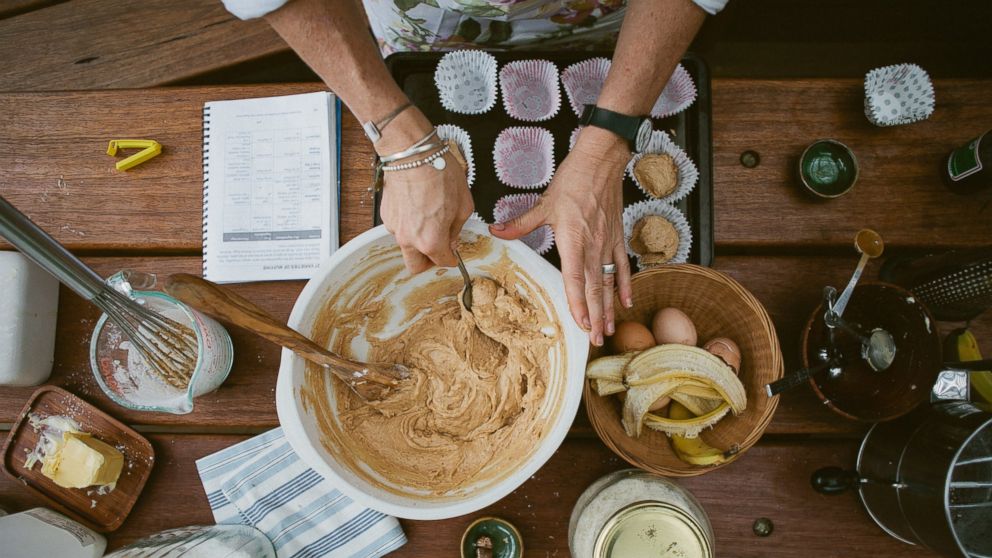5 Gluten Myths You Were Too Embarrassed to Ask About
Find out how bad for you gluten really is.

May 9, 2014— -- intro: It feels like everybody’s going gluten-free these days, but the fad diet has also spread quite a bit of misinformation about the g-word.
Some people -– even those who claim to follow gluten-free diets -– don’t even know what gluten is. And if you’re one of them, that’s OK. We won’t tell anyone your secret.
We’ll even help you out: Gluten is a word used to describe the proteins found in wheat, rye and barley. You’re welcome!
Here are a few myths that have been circulating lately.
quicklist: 1title: Gluten makes you fat.url:text:The number one myth registered dietitian Kristen Kirkpatrick hears in her office is that cutting gluten will help people lose weight.
“Gluten does not make you fat,” said Kirkpatrick, who manages wellness and nutrition services at the Cleveland Clinic. “Calories make you fat regardless of where those calories are coming from, whether they’re coming from brown rice, which is gluten-free or a wheat bagel.”
In fact, sometimes gluten-free bread can have 30 more calories than regular bread, Kirkpatrick said. And if you eat more calories in a day than you use, the extra calories will be stored as fat, she said.
“Some gluten-free foods contain extra sugar or calories to make them more palatable – to make up for the loss of the gluten,” said Dr. Kelly Thomsen, a gastroenterologist at Vanderbilt University Medical Center.
That said, since people who go gluten-free need to do some extra label-reading, it can help them make better choices overall and ultimately lose weight, Kirkpatrick said. But it’s a secondary factor.media:23645580
quicklist: 2title: Gluten is not part of a "clean" diet.url:text:First of all, “clean” eating is subjective, Kirkpatrick said. The Food and Drug Administration has no official definition for it. But to her, it means something along the lines of eating foods that are as whole and unprocessed as possible.
As such, you can eat a clean diet that includes gluten or a clean diet that cuts it out, she said. Gluten doesn’t make a diet clean or unclean.
“You can be on a horrible gluten-free diet, just like you can be on a horrible vegetarian diet,” Kirkpatrick said.
Remember, French fries are gluten-free and vegetarian.
quicklist: 3title: Gluten is bad for you.url:text:
Thompsen says she often hears people say that they want to reduce the amount of gluten in their diet, but she says that’s a useless (and expensive) choice for anyone who hasn’t been diagnosed with celiac disease.
“There’s nothing inherently unhealthy about gluten,” Thompsen said.
Gluten alone doesn’t have many health benefits, but foods that contain gluten – like whole grains – tend to be higher in fiber and have a lot of vitamin B, zinc and iron, she said. As a result, cutting gluten could actually result in nutritional deficiencies.
That’s why people with celiac disease often meet with a nutritionist to make sure there are no holes in their diets, Thompsen said.media:23655461
quicklist: 4title: You personally can’t eat gluten because you just know it.url:text: It’s true that there are people who can’t eat gluten, but they’re a minority of the population. These people have celiac disease.
“Most people don’t have celiac disease, so they don’t need to remove gluten from their diets,” Thompsen said.
When someone with celiac disease eats gluten, it damages the tiny finger-like protrusions that line their small intestines, keeping them from absorbing nutrition from food, according to the National Institutes of Health. The disease affects about 1 percent of the population, and can be diagnosed with a blood test. If that’s inconclusive, a doctor may perform additional tests, like a biopsy.
Symptoms of celiac disease vary and can include fatigue and diarrhea as well as fertility problems, joint pain and seizures. The only treatment is a lifelong, gluten-free diet.
If you think you have celiac disease, do not stop eating gluten before seeing your doctor, Thompsen said. If you stop eating gluten before getting tested for celiac, it could result in a false negative diagnosis.
There are also people who have a gluten intolerance, which Thompsen said is a diagnosis that comes only when all other possible diagnoses have been ruled out. These people do not have celiac disease, but their doctors have determined that they can’t eat gluten. Again, she said people who suspect they have a gluten intolerance should not stop eating gluten before seeing their doctors.
Finally, a gluten allergy is when someone experiences signs of allergic reaction when they eat gluten, Thompsen said. They may have swollen lips, difficulty breathing or diarrhea. Again, people should not self-diagnose or self-treat.media:23645678
quicklist: 5title: Gluten causes cancer.url:text:Thompson says this one is a myth for the majority of the population.
“For the average person, eating gluten in their diet does not increase the risk of cancer,” Thompsen said.
Long-term complications of untreated celiac disease, however, can include intestinal cancers, she said. Again, if you think you have celiac disease, make an appointment with your doctor before making any dietary changes, she said.




